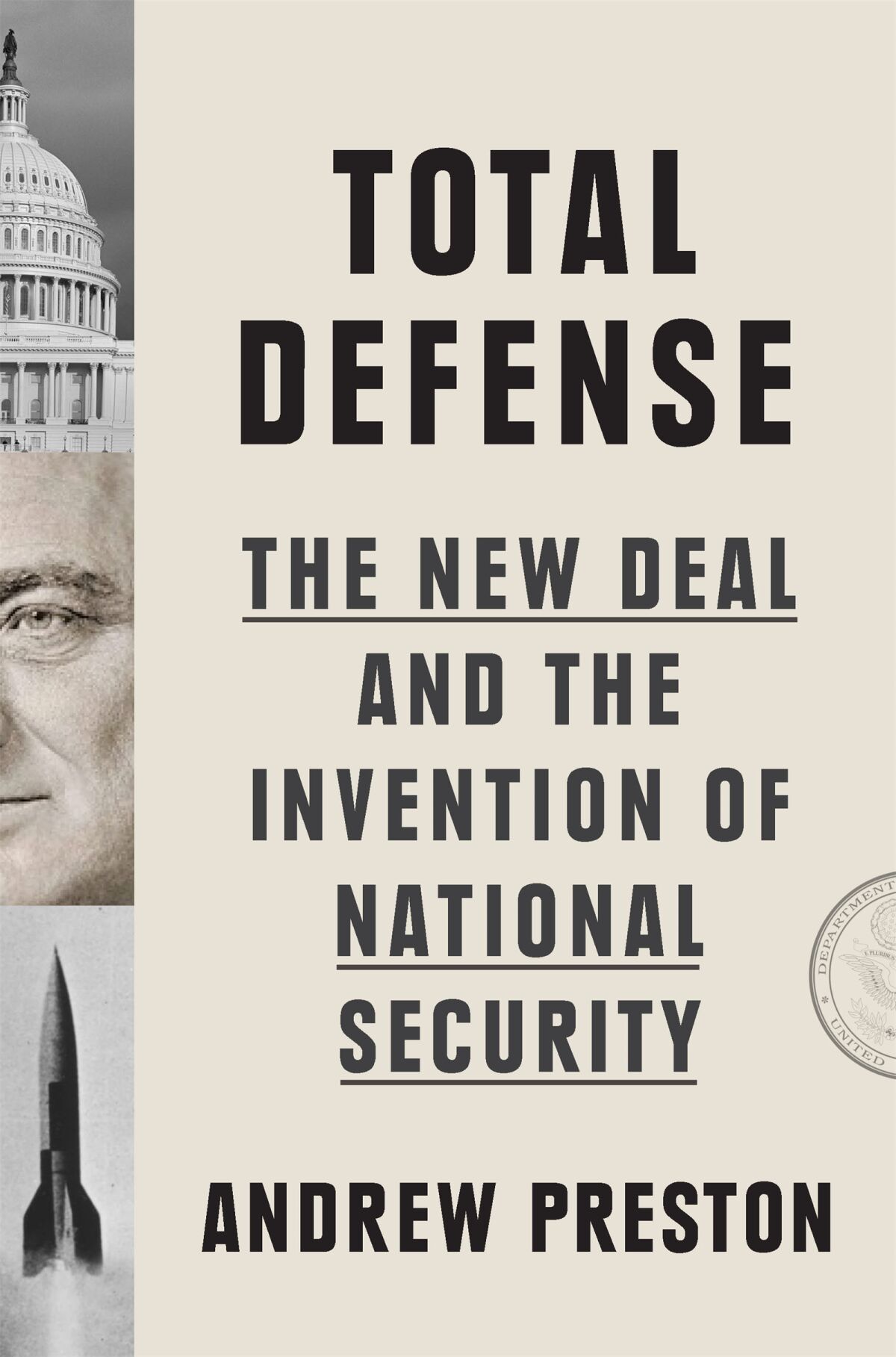The essential move Americans made after 1937, Preston claims, was to supplement territorial self-defense—keeping the homeland and the people on it safe—with a more inchoate and vague agenda that effectively declared even hypothetical risks unacceptable. Nipping them in the bud became a nonnegotiable imperative. Americans in the 1940s relabeled their old Department of War the Department of Defense. But what they were really doing was committing to the idea that the only good defense is preemptive offense.
In 1935, Congress passed Franklin Roosevelt’s most consequential legislation, the Social Security Act, to provide help to the aged and unemployed. “It was no coincidence that the invention of national security closely followed the creation of social security,” Preston asserts. Surely that is convincing as a rhetorical matter, since Roosevelt is so associated with both phrases. But what did he believe was the relationship between the two? Were other Americans buying it?
In a pivotal 1937 address in Chicago, known as the “quarantine” speech, Roosevelt argued that, at a minimum, he would strive to keep tyrannies like Germany and Japan from infecting America. After the Russian Revolution, Eastern Europe had been set up by the Western powers at Versailles as a “sanitary cordon” against communism, and now FDR applied same rhetoric to right-wing threats. As Preston puts it, “FDR’s extension of biopolitics to international relations was not just a stylistic flourish.” He means that the modern world had evolved new consciousness of population-level threats like epidemics—influenza having killed over half a million Americans in living memory, and over 50 million globally. States had to shoulder the task of managing the threats, turning “anarchic uncertainty into manageable risk.”
One of the wiliest men to serve as president, Roosevelt began in 1937 to analogize the threat of war to the threat of disease in an interconnected world. For Preston, it was the globalization of commerce and travel that set up the possibility of the shift to a new ideology of national security. He doesn’t lay much emphasis on the fact that the United States already had new territorial holdings and interests, most notably across the Pacific, that made free security a relic, too. Instead, he focuses on the way a new consciousness of how threats matter did the trick.
